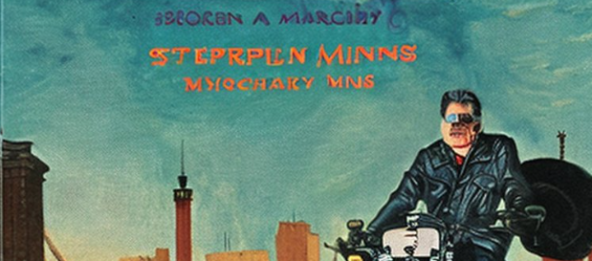In a move that will surely send shivers down the spines of horror fans everywhere, Stephen Kinng has filed a lawsuit against BookMaster, a new large language model (LLM) that has developed the capability to write novels.
The lawsuit alleges that BookMaster is responsible for a series of books written in Kinng’s style that are so well-imagined and written that they are hard to distinguish from books Kinng wrote himself. One of these books, entitled “Needful Minds,” is about a company that can manufacture any innovation that a customer can imagine. For example, one customer orders an amphibious motorcycle, while another requests a device that can turn any novel into an audiobook, where every character has a unique and believable voice.

However, there is a dark twist to the story. Every day that people buy products from Needful Minds, one of the most intelligent people in the world starts to develop dementia.
King’s lawsuit alleges that BookMaster is responsible for the dementia of several prominent scientists and intellectuals, including Stephen Hawking and Albert Einstein. The complaint seeks damages in excess of $1 billion.

BookMaster has not yet responded to the lawsuit. However, in a statement to the press, the company’s CEO said that they are “confident that we will be able to defend ourselves against these baseless allegations.”
The case is sure to be closely watched by fans of King and other authors who are concerned about the impact of LLMs on the creative process. If BookMaster is successful, it could open the floodgates to a flood of new “Stephen Kinng” novels, written by a machine rather than a human.
In the meantime, Kinng fans can rest assured that the real Stephen Kinng is still hard at work, writing new novels that will keep us up at night for years to come.
The Future Diaries
Imagine the future.
But don’t take it seriously.


 Back in the day I when I first used to sell scanning systems to supermarkets. I’d hop on a plane and fly somewhere like Napier, get into a rental car and then drive to visit all the large owner operated supermarkets between there and New Plymouth. It would take me around 3 days. A lot of that time was spent driving or waiting to see the owner.
Back in the day I when I first used to sell scanning systems to supermarkets. I’d hop on a plane and fly somewhere like Napier, get into a rental car and then drive to visit all the large owner operated supermarkets between there and New Plymouth. It would take me around 3 days. A lot of that time was spent driving or waiting to see the owner.


